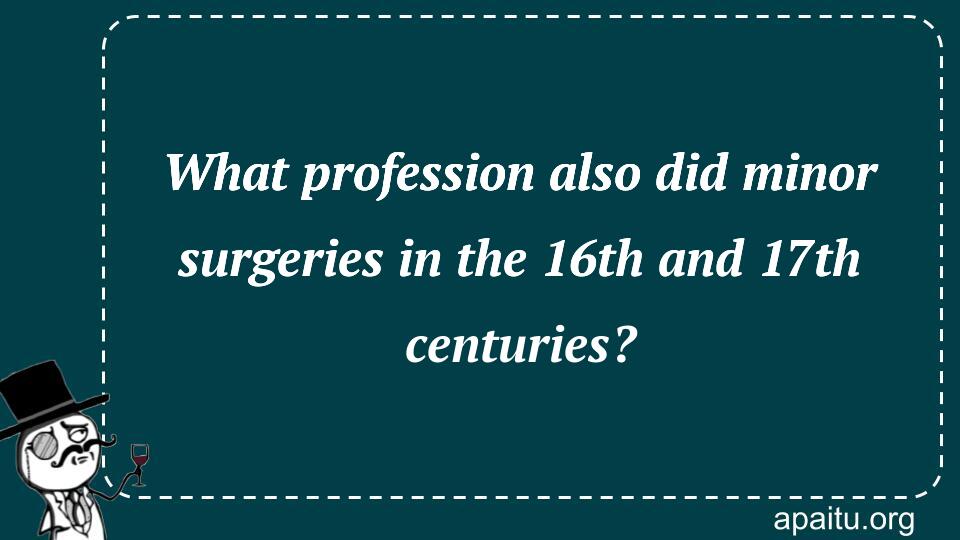Question
Here is the question : WHAT PROFESSION ALSO DID MINOR SURGERIES IN THE 16TH AND 17TH CENTURIES?
Option
Here is the option for the question :
- Monk
- Barber
- Cartwright
- Cobbler
The Answer:
And, the answer for the the question is :
Explanation:
There were barbers around long before there were surgeons or dentists. These barbers, who were also known as “barber-surgeons,” did more than just cut hair; they extracted teeth, drew blood, and conducted other minor surgical procedures. Sweeney Todd, the Demon Barber of Fleet Street, is perhaps the most well-known fictional example of a barber-surgeon.

In the 16th and 17th centuries, barbers were not just known for cutting hair and shaving beards. They were also known for performing minor surgical procedures. This may seem unusual to us today, but at the time, barbers were viewed as skilled craftsmen who were capable of working with sharp instruments and performing delicate procedures.
Barbers in the 16th and 17th centuries were often part of a guild or association that regulated their profession. They were trained in a variety of skills, including cutting hair, shaving, and bloodletting. Bloodletting was a common medical practice at the time, and it involved making a small incision in a patient’s skin to let out a small amount of blood. Barbers were often the ones who performed this procedure.
barbers also performed other minor surgical procedures, such as tooth extractions, wound dressings, and even amputations. They were skilled at using a variety of instruments, including scalpels, forceps, and saws. They were also responsible for preparing medicinal remedies and administering treatments for various ailments.
However, the practice of barbers performing surgeries was not without its risks. Without modern medical technology and sterilization methods, infections were common, and many patients did not survive their procedures. As medical knowledge advanced and the field of surgery became more specialized, the practice of barbers performing surgeries gradually fell out of favor.
the role of barbers has evolved significantly. They are no longer viewed as medical professionals, but rather as skilled craftsmen who provide grooming services to their clients. However, the legacy of barbers performing surgeries in the 16th and 17th centuries is an important reminder of how medical knowledge and practices have evolved over time.
barbers in the 16th and 17th centuries were known for performing a variety of medical procedures, including minor surgeries. They were viewed as skilled craftsmen who were capable of working with sharp instruments and performing delicate procedures. While the practice of barbers performing surgeries is no longer common, it is an important part of medical history that reminds us of the evolution of medical knowledge and practices over time.